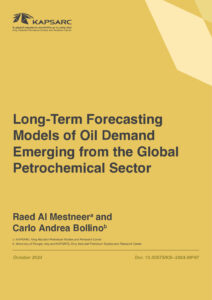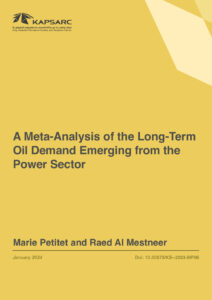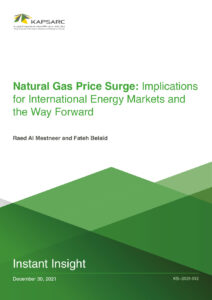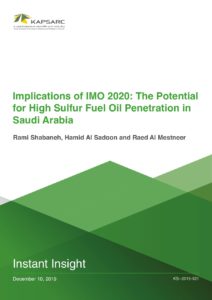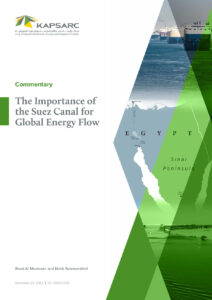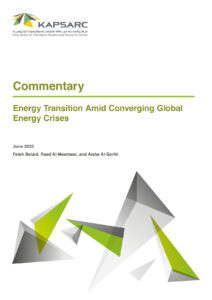Dr. Raed is a research fellow and an Economist in the Oil & Gas program, with a particular interest in industrial development, economic diversification, and econometric modeling. He has worked with different types of econometric modeling techniques on different projects, especially in the field of economic diversification, oil prices and oil demand modeling. Prior to joining KAPSARC, he worked for Standard & Poor’s analytics and Capital IQ division in S&P’s headquarters in the financial district of New York, Wall Street, where he was involved in designing the first probability of default model tailored to the Saudi economy. He earned his Ph.D. in Economics from Southern Illinois University and was awarded a Master of Science in Economics from California State Polytechnic University. The title of his Ph.D. dissertation was “Economic Diversification: The Case of Saudi Arabia with Reference to Rich Natural Resource Countries.” He was assigned to lead KAPSARC’s long-term sectoral oil demand forecast and outlook projects as a portfolio project manager. Through those projects, Dr. Raed, along with the rest of the project leads, was successful in developing forecasting models that forecast the long-term oil demand in different sectors (land transportation sector, maritime sector, aviation sector, petrochemical sector, residential/commercial building sector, agricultural sector, and power sector). Furthermore, Dr. Raed is a lead modeler of a project dedicated to forecasting the oil demand stemming from petrochemical feedstocks. He represented KAPSARC as a speaker at multiple conferences organized by the International Association for Energy Economics (IAEE) and workshops organized by the Office of the Economic and Development Affairs Commission (EDAC) of The Cooperation Council for the Arab States of the Gulf (GCC). Dr. Raed was recently appointed by the Board of Trustees of Riyadh Economic Forum as a supervising member of a study titled “Maximizing the Economic Revenue from Natural Resources to Achieve Sustainable Development.” Dr. Raed worked in KAPSARC as a T20 Events and Logistics Leader. He has made signicant contribution by being the first Saudi to teach applied econometrics at the newly eatblished KAPSARC Academy to facilatiate one of their acceleration programs in collaboration with LUISS Business School. Apart of Dr. Raed ’s academic, research, and advisory work he was a key member of an organizational restructuring team to develop KAPSARC’s training and learning & development programs (TASAMI) to build human capital capacity.
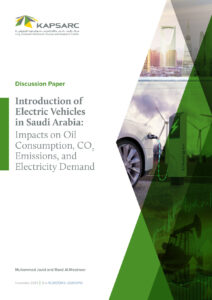
Introduction of Electric Vehicles in Saudi Arabia: Impacts on Oil Consumption, CO2 Emissions, and Electricity Demand
In this study, we project the number of internal combustion engine (ICE) vehicles in Saudi Arabia up to 2050. The projected number of vehicles is then used to project the oil demand and CO2 emissions associated with the road transport sector by 2050. On the basis of the projected number of ICE vehicles, we design three scenarios for developing electric vehicles (EVs) (high-, moderate-, and low-growth scenarios) to determine the impact of the expansion of EVs on future oil demand, CO2emissions, and electricity demand.
2nd December 2024
